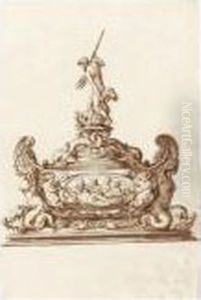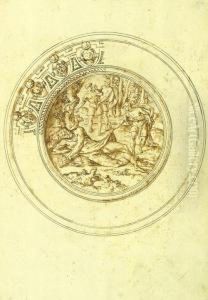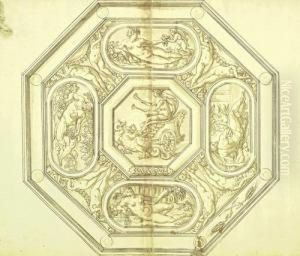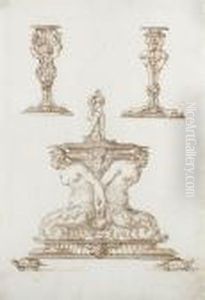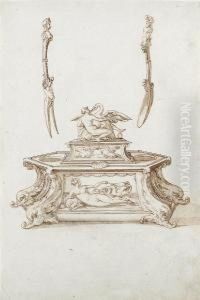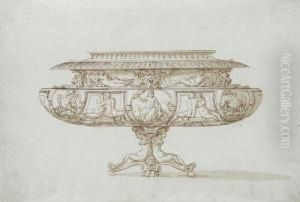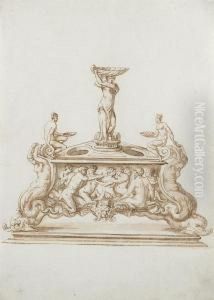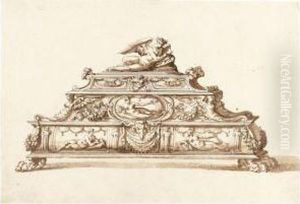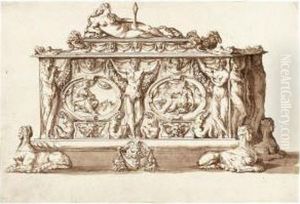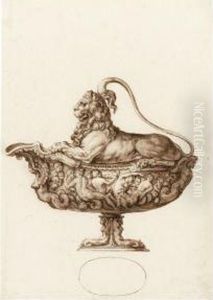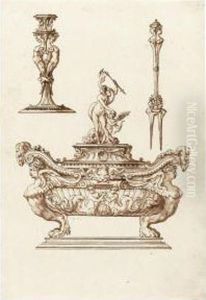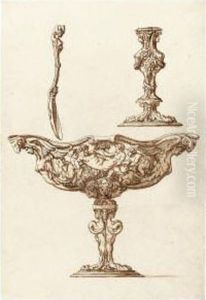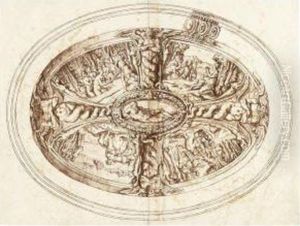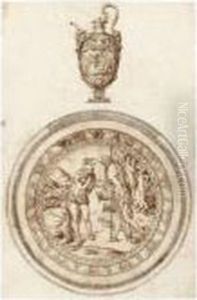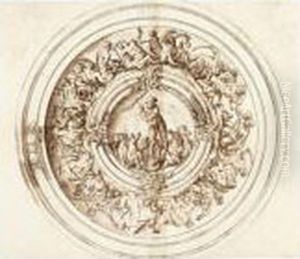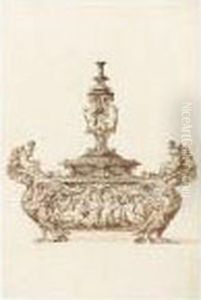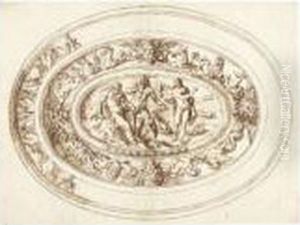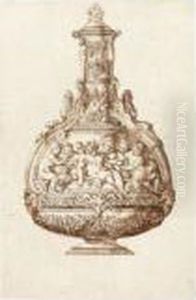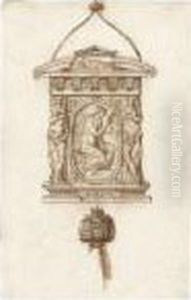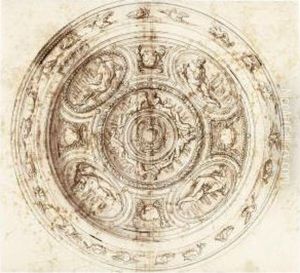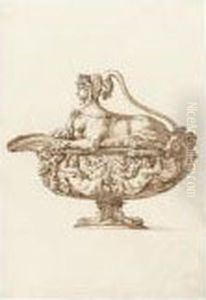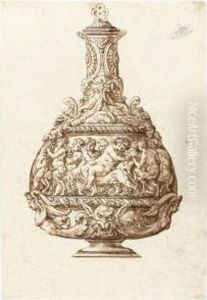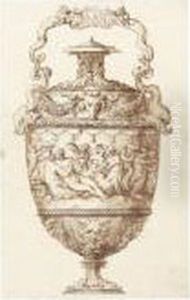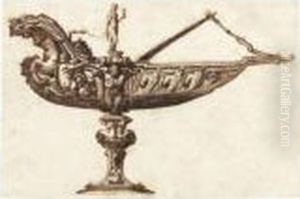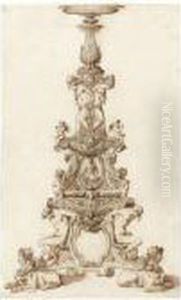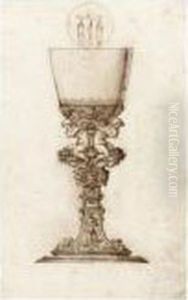Jacopo Strada Paintings
Jacopo Strada was an Italian polymath, who was active during the Renaissance period. Born in 1507 in Mantua, he was highly skilled as an architect, goldsmith, collector, and antiquary, but he is most renowned for his work as an artist and a numismatist. Strada's early life is not well-documented, but he is believed to have been trained in the arts in his hometown before moving to Rome.
In Rome, Strada's talents flourished as he became involved in the intellectual and artistic circles of the time. He gained a reputation as a learned individual with an extensive knowledge of ancient art and artifacts. His expertise in numismatics, the study or collection of currency, particularly coins, made him a valuable figure among collectors and scholars.
Strada eventually moved to Vienna, where he served as an agent for several patrons, including the Holy Roman Emperor, Ferdinand I. He was appointed as the Emperor's Antiquarius and later as the official architect. In these roles, he was responsible for collecting and cataloging ancient coins and other artifacts for the imperial collection. His work contributed significantly to the understanding of ancient art and numismatics.
Aside from his scholarly pursuits, Jacopo Strada was also an artist, although his artistic works are not as well-known as his contributions in other fields. He designed buildings, engraved coins, and medals, and was involved in the decorative arts. His son, Ottavio Strada, continued in his footsteps as a numismatist and antiquarian.
Strada's contribution to the arts and the humanities during the Renaissance was multifaceted. He was a key figure in the dissemination of knowledge about classical antiquity and played a significant role in shaping the Renaissance understanding of the ancient world. Jacopo Strada died in 1588, leaving behind a legacy as a man of learning and a bridge between the classical past and the Renaissance present.
